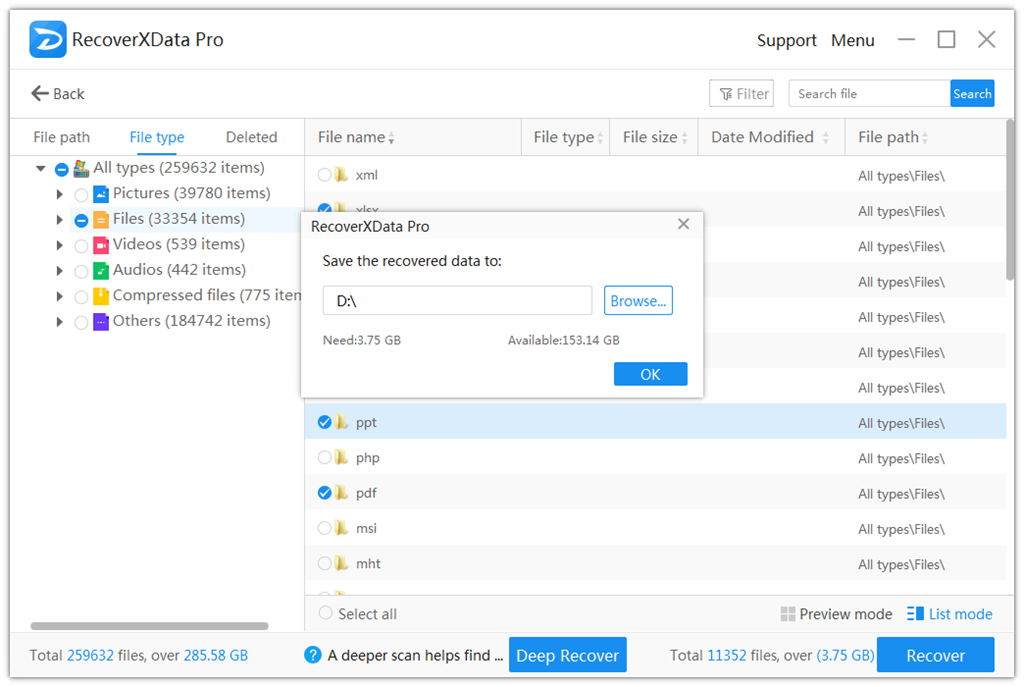Everything You Need to Know About Data Recovery Solutions
Data is the lifeblood of modern businesses and every individual. Companies rely on data to make informed decisions, develop strategies, and improve customer experience. But what happens when data is lost or becomes inaccessible? This is where data recovery solutions come in. In this post, we will discuss everything you need to know about data recovery solutions.

Contents
What is Data Recovery? Types of Data Recovery Solutions Factors to Consider When Choosing a Data Recovery Solution Tips for Preventing Data Loss Conclusion
What is Data Recovery?
Data recovery is the process of retrieving lost, corrupted, or damaged data from various storage devices such as hard disk drives, solid-state drives, USB drives, memory cards, and others. Data loss can occur due to a variety of reasons such as accidental deletion, hardware failure, virus or malware attack, power failure, natural disasters, and more.
Data recovery solutions are designed to help individuals and businesses recover lost data and minimize the impact of data loss on their operations.
Types of Data Recovery Solutions
There are several types of data recovery solutions available in the market today. Some of the most common ones are:
-
Software-Based Data Recovery Solutions
Software-based data recovery solutions are designed to recover data from storage devices that are still functioning. They work by scanning the device for lost or damaged files and recovering them. These solutions are easy to use and can be downloaded from the internet. However, they may not be effective in recovering data from severely damaged storage devices.

-
Hardware-Based Data Recovery Solutions
Hardware-based data recovery services are used to recover data from physically damaged storage devices. They work by removing the damaged components and replacing them with functional ones. These solutions require specialized equipment and expertise and are typically more expensive than software-based solutions.

-
Cloud-Based Data Recovery Solutions
Cloud-based data retrieval solutions are designed to recover data stored in the cloud. They work by connecting to the cloud service provider’s servers and retrieving lost data. These solutions are convenient, as they can be accessed from anywhere with an internet connection. However, they may not be effective in recovering data from storage devices that are not connected to the cloud.
Factors to Consider When Choosing a Data Recovery Solution
When choosing a data recovery solution, there are several factors to consider, including:
-
Type of Storage Device
Different data restoration services are designed to work with specific types of storage devices. It is important to choose a solution that is compatible with the storage device you are trying to recover data from.
-
Type of Data Loss
The cause of data loss can also impact the choice of data recovery solution. For example, if data loss is due to physical damage to the storage device, a hardware-based solution may be required.
-
Cost
Data recovery solutions vary in cost, and it is important to choose a solution that fits within your budget.
-
Timeframe
The timeframe for data recovery can also be a factor in the choice of solution. Some solutions may take longer to recover data than others.
Tips for Preventing Data Loss
Prevention is always better than cure. Here are some tips for preventing data loss:
-
Regularly Back Up Data
Backing up data regularly is one of the most effective ways to prevent data loss. This ensures that in case of data loss, a backup copy is available.
-
Use Antivirus Software
Installing and regularly updating antivirus software can help prevent data loss due to virus or malware attacks.
-
Handle Storage Devices with Care
Storage devices should be handled with care to prevent physical damage that can result in data loss.
-
Invest in Quality Hardware
Investing in quality storage devices and hardware can reduce the risk of data loss due to hardware failure.
Conclusion
Data loss can have serious consequences for individuals and businesses. Data recovery solutions can help minimize the impact of data loss by recovering lost or damaged data. When choosing a data recovery solution, it is important to consider factors such as the type of storage device, type of data loss, cost, and timeframe for recovery. Additionally, prevention is always better than cure, and individuals and businesses should take steps to prevent data loss.
In summary, data recovery solutions are essential for modern businesses that rely on data to make informed decisions and improve customer experience. By understanding the different types of data retrieval solutions and factors to consider when choosing one, businesses can effectively recover lost data and minimize the impact of data loss on their operations.
The earlier the data is scanned, the more data will be recovered.
Recover Now

